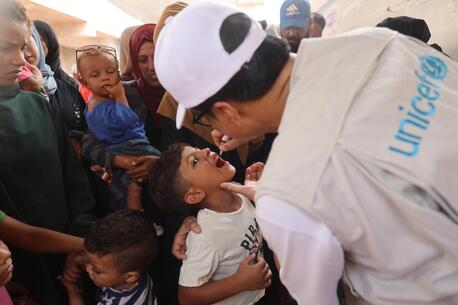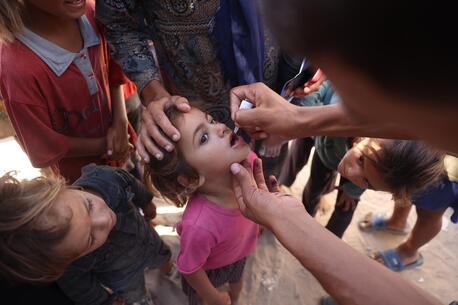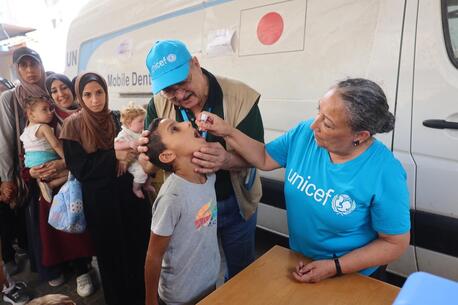
Polio Eradication: The Final Steps
An intimate evening with inspiring global leaders in polio eradication.
On October 25, 2016, the U.S. Fund for UNICEF Southeast Region hosted a reception for UNICEF’s Director of Polio Eradication, Mr. Reza Hossaini, to receive an update on the significant progress being made in polio eradication efforts, and to have the opportunity to view a newly released virtual reality video on polio eradication. Over 40 leaders in medicine, business and the community met at the home of Dr. Gulshan Harjee, U.S. Fund for UNICEF Southeast Board Member, to celebrate the success of the Global Polio Eradication Initiative, as well as to hear about the remaining efforts needed to fully eradicate polio from the planet.
The news on eradicating polio is good: since 1988 polio has been reduced by 99.9%. As Mr. Hossaini remarked, “A few decades ago there were over 350,000 annual cases of polio. There are now only 27 cases of polio in the world - 3 in Afghanistan, around 8 in Nigeria and the rest in Pakistan.” Total eradication of this preventable disease will have significant impact, generating savings of $50 billion over the next 20 years.
The evening included a Q&A session where Mr. Hossaini, along with guests Dr. Rebecca Martin, Director of the Center for Global Health at the CDC, and Dr. Jafari Hamid, former Director of the Global Polio Eradication Initiative at the World Health Organization, fielded questions ranging from the success of the polio eradication effort in India, to the types of support provided apart from vaccinations.
In addition, the evening’s guests were among the first to view the newly-released virtual reality video on polio eradication entitled "You are there: on the road to making polio history." Narrated by Ewan McGregor, the film takes you on an immersive journey to Kenya, where you meet Job, a 9-year old boy living with polio, and see his vaccinator Sabina’s dedicated work in the fight against this highly-infectious, crippling, and often fatal disease.
Before the night’s end, Bill Nordmark, member of the Rotary Club of Atlanta, offered impassioned remarks from his perspective as a polio survivor on the impact the community can have on the global eradication initiative.
HOW TO HELP
There are many ways to make a difference
War, famine, poverty, natural disasters — threats to the world's children keep coming. But UNICEF won't stop working to keep children healthy and safe.
UNICEF works in over 190 countries and territories — more places than any other children's organization. UNICEF has the world's largest humanitarian warehouse and, when disaster strikes, can get supplies almost anywhere within 72 hours. Constantly innovating, always advocating for a better world for children, UNICEF works to ensure that every child can grow up healthy, educated, protected and respected.
Would you like to help give all children the opportunity to reach their full potential? There are many ways to get involved.





